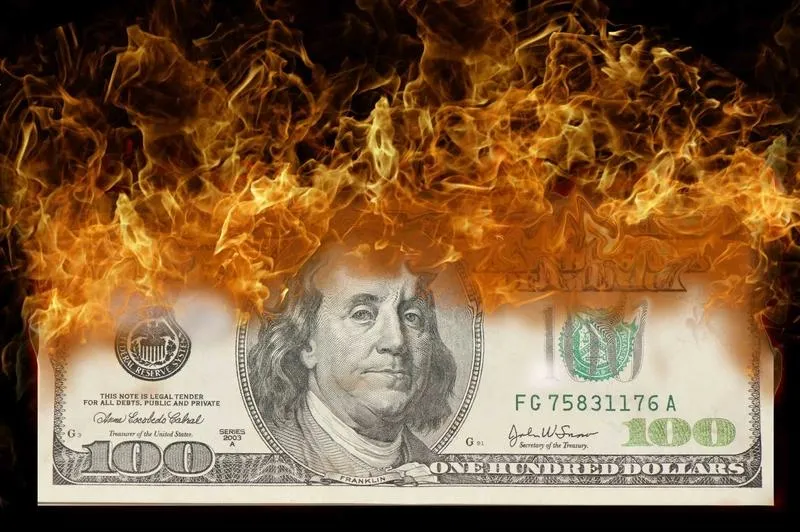
The Push to Ban Cash – Is Financial Freedom Under Threat?
The move toward a cashless society is accelerating worldwide. Governments, banks, and tech giants are advocating for digital transactions, touting convenience, security, and efficiency. But behind the glossy promises lies a potential loss of financial privacy and independence.
This article explores the global push to ban cash, the motivations behind it, and the potential consequences for everyday Americans.

The Global Push Toward a Cashless Society
From Sweden to China, countries are embracing cashless systems, with some even setting dates to eliminate physical currency entirely. Here are key trends driving this transition:
Rising Digital Payment Systems:
Mobile apps like Apple Pay, Venmo, and CashApp dominate the payment landscape.
Central Bank Digital Currencies (CBDCs) are being piloted in several countries, including the U.S.
Government Incentives:
Policymakers argue that cash facilitates tax evasion and illegal activities, making its elimination a tool for reducing crime.
Consumer Convenience:
Contactless payments and instant transactions are becoming the norm, making cash seem outdated and inconvenient.
Why Is Cash Under Threat?
While digital payments have clear benefits, the push to ban cash is not without ulterior motives. Key motivations include:
Increased Government Oversight:
Digital transactions leave a permanent record, allowing governments to monitor spending habits and enforce tax compliance.
This level of surveillance could lead to restrictions on certain types of purchases or penalties for non-compliance.
Corporate Control:
Private payment processors benefit from a cashless system, earning fees on every transaction and gaining access to valuable consumer data.
Economic Manipulation:
Central banks can more easily implement policies like negative interest rates in a cashless economy, compelling consumers to spend rather than save.
The Risks of a Cashless Society
The elimination of cash could have profound implications for personal freedom and financial security. Key risks include:
Loss of Privacy:
Cash transactions are anonymous, providing a layer of privacy that digital payments cannot match.
In a cashless society, every transaction is recorded and potentially accessible to corporations and governments.
Vulnerability to Cyber Threats:
Digital systems are susceptible to hacking, outages, and fraud, potentially leaving individuals without access to their funds during disruptions.
Exclusion of Vulnerable Populations:
Low-income individuals, the elderly, and those without access to banking services may struggle to adapt to a fully digital system.
Control Over Spending:
In a cashless economy, governments or corporations could restrict certain purchases or impose financial penalties, undermining individual autonomy.
The American Perspective: Where Are We Now?
In the U.S., the transition toward a cashless society is progressing steadily, with digital payment systems gaining widespread adoption. However, cash remains an important fallback for many Americans. Recent developments include:
Central Bank Digital Currency (CBDC) Trials: The Federal Reserve is exploring a digital dollar, raising questions about its potential impact on personal freedom.
Corporate Policies: Some businesses have gone entirely cashless, sparking debates about inclusivity and consumer choice.
How to Protect Your Financial Freedom
As the world moves closer to a cashless future, there are steps you can take to safeguard your autonomy:
Diversify Your Financial Options:
Keep a mix of cash, digital payment systems, and alternative currencies like gold or cryptocurrency.
Advocate for Cash Acceptance:
Support businesses that accept cash and push back against policies that force cashless transactions.
Educate Yourself on CBDCs:
Stay informed about Central Bank Digital Currencies and their potential implications for your financial privacy.
Build a Financial Safety Net:
Ensure you have access to physical assets and emergency funds in case of system disruptions.
Conclusion: A Fight for Financial Independence
The push to eliminate cash is about more than just convenience—it’s about control. While digital payments offer undeniable benefits, the risks to privacy, autonomy, and financial freedom cannot be ignored.
As Americans, it’s crucial to remain vigilant and proactive, ensuring that the transition to a cashless society doesn’t come at the expense of individual rights. By staying informed and prepared, we can navigate this changing landscape without losing what matters most.
